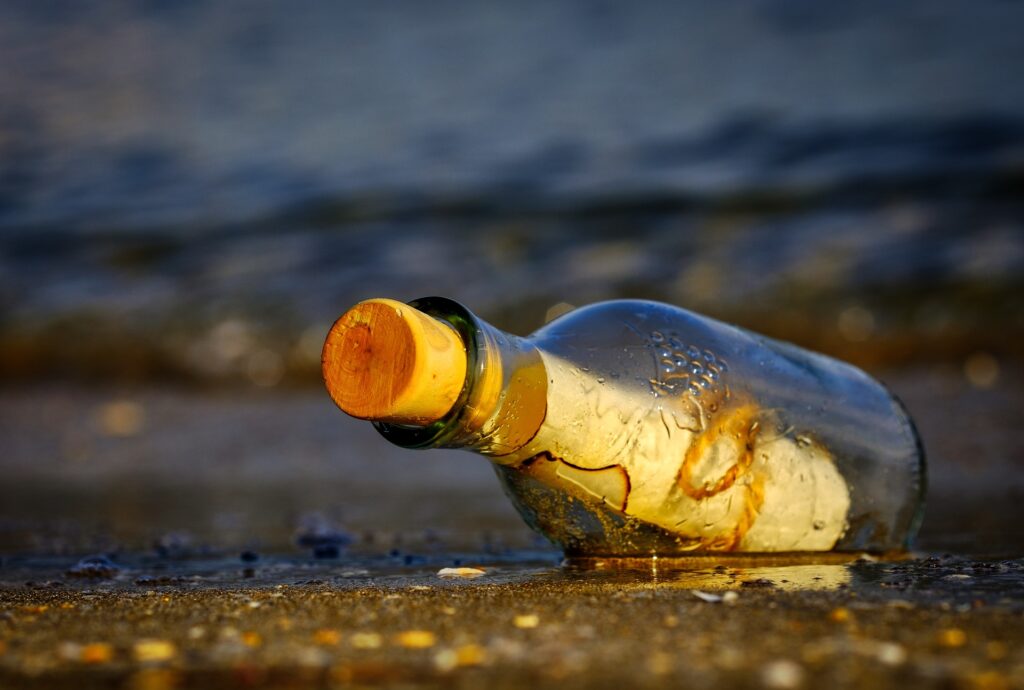
Selected Key Sources:
Abu-Lughod, J. 1991. Before European Hegemony: The World System AD 1250–1350. Oxford:
Oxford University Press.
Acheson, J.M. 1981. Anthropology of Fishing. Annual Review of Anthropology, 10: 275-316.
Ben-Yehoyada, N. 2017. The Mediterranean Incarnate: Transnational Region Formation between Sicily and Tunisia since World War II. Chicago: University of Chicago Press.
Blum, H. 2010. The prospect of oceanic studies. PMLA, 125(3): 670-77.
Braudel, F. 1972. The Mediterranean and the Mediterranean World in the Age of Philip II. New York: HarperCollins.
Campling, L., & Colás, A. 2021. Capitalism and the sea: the maritime factor in the making of the modern world.
Verso Books.
Chalfin, B. 2010. Recasting maritime governance in Ghana: the neo-developmental state and the Port of Tema. Journal of Modern African Studies, 48(4): 573–98.
Dawdy, S. & and Bonni, J. 2012. Towards a General Theory of Piracy. Anthropological Quarterly, 85 (3): 673–699.
Dent, A. Piracy, circulatory legitimacy, and neoliberal subjectivity in Brazil. Cultural. Anthropology, 27(1): 28–49
Dua, J. 2019. Captured at Sea: Piracy and Protection in the Indian Ocean. Oakland: University of California Press.
Gaynor, J.L. 2016. Intertidal History in Island Southeast Asia: Submerged Genealogy and the Legacy of Coastal Capture. Ithaca, NY: Cornell University Press.
Gilroy, P. 1993. The Black Atlantic: Modernity and Double Consciousness. London: Verso.
Hartman, S. 2008. Lose your mother: A journey along the Atlantic slave route. Macmillan.
Helmreich, S. 2009. Alien Ocean: Anthropological Voyages in Microbial Seas. Berkeley: University of California Press.
Helmreich, S. 2011. Nature/Culture/Seawater. American Anthropologist, 113(1): 132-144
Hau’ofa, E. 2008. We are the Ocean: Selected Works. Honolulu: University of Hawaii Press.
Ho, E. 2006. The Graves of Tarim: Genealogy and Mobility across the Indian Ocean. Berkeley: University of California Press.
Ho, E. 2004. Empire through diasporic eyes: A view from the other boat. Comparative Studies of Society and History, 46 (2): 210–46.
Kahn, J. 2019. Islands of Sovereignty: Haitian Migration and the Borders of Empire. Chicago: University of Chicago Press.
Khalili, L. 2021. Sinews of war and trade: Shipping and capitalism in the Arabian Peninsula. Verso Books.
Levinson, M. 2016. The Box: How the Shipping Container Made the World Smaller and the World Economy Bigger. Princeton, NJ: Princeton University Press.
Lowe, L. 2015. The Intimacies of Four Continents. Durham: Duke University Press.
Mannov, A. 2015. Economies of Security: An Ethnography of Merchant Seafarers, Global Itineraries and Maritime Piracy. Unpublished PhD thesis, University of Copenhagen.
Maurer, B. 1997. Recharting the Caribbean: Land, Law, and Citizenship in the British Virgin Islands. Ann Arbor: University of Michigan Press.
McCormack, F. 2017. Private Oceans. The Enclosures and Marketisation of the Seas. London: Pluto Press.
Moore, A. 2012. The aquatic invaders: Marine management figuring fishermen, fisheries, and lionfish in the Bahamas. Cultural Anthropology, 27 (4): 667–88.
Pálsson, G. 1994. Enskilment at sea. Man, n.s., 29 (4): 901–27.
Roszko, E. 2021. Fishers, Monks and Cadres: Navigating State, Religion and the South China Sea in Central Vietnam. Honolulu: University of Hawaii Press.
Schober, E., & Leivestad, H. H. 2022. Past the canal: An anthropology of maritime passages. History and Anthropology, 1-5.
Subramanian, A. 2009. Shorelines: Space and Rights in South India. Stanford: Stanford University Press.
Todd, Z. 2016. Refracting the State Through Human-Fish Relations: Fishing, Indigenous Legal Orders and Colonialism in North/Western Canada. DIES: Decolonization, Indigeneity, Education, and Society, 7(1): 60-75.
Counter-Mapping Shipping: Digital Joy and Digital Labor in Oceanic Social Media
The Oceans Lab, an interdisciplinary research and advocacy initiative, explores maritime issues across oceanic spaces. With a focus on themes of race, labor, inequality, climate change, migration, and geopolitics, the Lab seeks to unravel the complexities of our oceans, making them comprehensible through innovative approaches. One such approach is the creation of this map that aims to help bridge gaps between how scholars describe oceanic spaces and the voices of those that inhabit them.
Inspired by global maritime shipping maps like marinetraffic.com, the Oceans Lab’s map is not just about tracing the trajectories of cargo ships; it is about weaving together interdisciplinary oceanic scholarship with the voices of those who inhabit the seas. It seeks to represent the various voices and ideas that converge to define the concept(s) of the ocean(s) from what may initially appear to be blank cartographic space. In the spirit of counter-mapping, we invite creators, scholars, and seafarers to use our submit button in order to actively participate in redefining how we perceive and understand oceanic spaces.
Counter-mapping, at its core, seeks to provide alternative perspectives and representations that challenge dominant power structures and dominant narratives (Peluso 1995). This ever-evolving map thus recognizes that the ocean is not just a backdrop for the global commerce represented on standard shipping maps, but a vibrant and dynamic space shaped by human experiences.
In addition to showcasing the multifaceted nature of oceanic life, the map brings to the fore the concept of digital labor and attention economies. In the digital age, content creation and the curation of online personas have become forms of labor, often underestimated and overlooked. Those at sea who engage in social media share not only their experiences participating in the shipping economy, but also contribute to the attention economy. In addition to including these digital contributions in scholarly conversations, the map hopes to open up questions about this digital labor, underscoring the importance of recognizing it within the broader context of oceanic scholarship.
More Info
Send us your name, a short essay, a short story, a photo, a video, or a link to a social media post related to the sea or maritime issues (TikToks at sea are welcome, as are research essays!). We aim to fill our map with “stories from the sea” of all kinds.